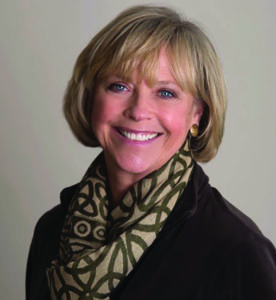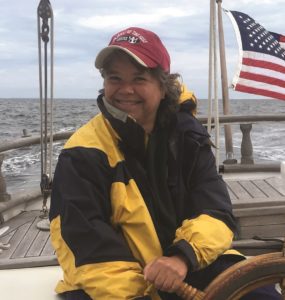In the Sept. 1 primary election, three Democratic candidates for the Barnstable County Commission are vying for two places on the Nov. 3 ballot. They’re hoping to replace Mary Pat Flynn, a Democrat who is not running for re-election, and to unseat Republican incumbent Ron Beaty.
The third seat on the commission is held by Democrat Ron Bergstrom, whose term ends in 2022.
The county commission is the three-person executive branch of county government, with a budget of about $29 million a year to support Cape-wide efforts on coastal erosion, climate change, wastewater, homelessness, housing, health care, fire and police training, dredging, and insect control.
Beaty, who on Twitter calls himself “The Donald Trump of Cape Cod,” served 16 months in federal prison for making death threats against President George H.W. Bush, U.S. Sen. Ted Kennedy, and state Sen. Lois Pines. His comments last year about gay politicians being “self-absorbed and self-centered” led to calls for his resignation.

Two of the three Democrats are from the Outer Cape — Cheryl Andrews, 60, of Provincetown, and Sheila Lyons, 63, of Wellfleet. The third Democrat, Mark Forest, 64, of South Yarmouth, is a former Provincetown town manager.
Sizing up Beaty, Lyons said, “All he is doing is spouting so he can get the attention he desires. It doesn’t lead to any progress.”
Lyons served as a county commissioner from 2008 to 2016, when she left to run for the state senate, a race she lost to Julian Cyr. Lyons did not plan to return to the commission, but the coronavirus became a factor, she said, because she believes experience is especially important now.
“We don’t have the luxury of time to learn on the job,” she said.
Lyons’s first term as a commissioner was during a recession, when the county had few financial resources. Now, she said, county government is in a more secure place, but Cape Cod towns are suffering from Covid-related financial turmoil.
This, she said, is the perfect opportunity for the county to step up its role and help.
“We need a county that handles the large physical issues that transcend the issues of each town,” she added.
In her first term, Lyons took up the issue of wastewater. “Nobody wanted to talk about wastewater back then,” she said. She recalled assembling a team, finding state funding for outreach, and now, years later seeing the groundwork result in a new system in Yarmouth.
“That’s how government works,” she said. “It is slow, but it can get things done.”

Cheryl Andrews, like Lyons, sees increasing the role of county government as a priority.
“You don’t see the county very active in communities, and I think that’s exactly what you are about to see change,” she said.
Andrews is a veteran of Provincetown government, having been elected nine times to various positions, most recently serving on the select board. After serving five terms, she lost her re-election bid in 2019. She has also spent two terms on the Provincetown Housing Authority and was elected twice as Provincetown’s representative on the county Assembly of Delegates.
The Mass. Chapter of the Sierra Club, the nation’s largest environmental organization, recently endorsed Andrews’s county commission campaign.
“We don’t have a great deal of money or regulatory authority at the county level,” she said. “But what you have is a lot of expertise in environmental work.”
Andrews said she has been disappointed with the county commission’s attention to the Outer Cape and hopes to change that.
Andrews has been practicing dentistry in Provincetown since 1986. Her health-care background, she says, gives her an advantage, as the first order of business the new county commissioner will be tackling is Covid-19.
Now a Yarmouth selectman, Mark Forest ran unsuccessfully for county commissioner in 2016. This time he received the endorsement of departing Commissioner Flynn.
Forest began his career in government as Provincetown town manager from 1980 to 1985. He expects to lean on his experience working in Provincetown during the AIDS crisis in the ’80s as he focuses on dealing with the coronavirus pandemic.
“Provincetown is where I learned about the critical role that local communities and governments can play in people’s lives,” he wrote.
But local government can only handle so much, which is why the county needs to step up, he said.
“When we look at the economic and public health challenges that we are facing right now, there is more that we can be doing; the county government is an underused resource,” Forest said.
For example, he continued, county funding played an instrumental part in rebuilding Provincetown’s MacMillan Pier in 1987. That, Forest said, could be a blueprint for the county commission’s role on Cape Cod.

“We need that same mindset now,” he said.
Voters in the Democratic primary can vote for two candidates on the September ballot; the two with the most votes will appear on the November ballot with Beaty.
The “pick two” vote has been historically confusing to voters, with many voting for only one. Although voting for just one candidate can be strategic.
Andrews believes voter confusion was a reason Beaty won the seat in 2016.
“He only won last time because there were over 15,000 blanks in a ‘choose no more than 2’ race,” she said.



